
Moments of simplicity: A cherished loaf in seasoned hands.
Welcome to the vibrant world of Mediterranean culture and cuisine. Even though I grew up in Jordan, which is not strictly Mediterranean but is influenced 100% by its traditions, my connection to this cuisine runs deep. I vividly recall spending summers with my grandmother. She would sit on the kitchen floor, kneading flour to make homemade bread from whole wheat that had been harvested and ground in nearby fields. When the bread was ready, we would eagerly grab slices, drizzle them with olive oil, and pair them with fresh tomatoes and herbs from her garden, not forgetting the succulent grapes hanging nearby. Such memories shaped my culinary passion and deepened my connection to the Mediterranean ethos.

Mediterranean Platter Delight
Anthony Bourdain: “You learn a lot about someone when you share a meal together.”
Having spent over 25 years in the food industry, I’ve been fortunate to dive deep into the culinary essentials and Mediterranean ethnicity that craft this rich cuisine. With every dish, you’ll discover a piece of Mediterranean culture, and every bite will transport you to the sunlit coasts, echoing the calls from bustling marketplaces.
What Defines Mediterranean Cuisine?
To begin with, when you pose the question, “What is Mediterranean food?”, you’re delving into a gastronomic treasure. As highlighted by Michael Pollan: “Eat food. Not too much. Mostly plants.” Given this perspective, the Mediterranean diet clearly stands out for its incredible health benefits. In fact, it’s consistently recognized by research for enhancing overall wellness and longevity. Drawing inspiration from authentic Mediterranean cuisine, this diet primarily emphasizes whole foods from plants. Moreover, it promotes moderate fish consumption, lean meats, and rich, healthy fats like olive oil. On another note, spices used in Mediterranean cooking add flavor and boast numerous health benefits. Therefore, it’s no wonder that the region’s ethnicity offers a nutritious mix of cultural traditions. In the end, these traditions collectively shape the vivacious flavors we all adore.
Is Mediterranean Food the Same as Middle Eastern?
Understanding the distinction between Mediterranean and Middle Eastern cuisine can sometimes be a nuanced affair. Mediterranean culture and food draw influences from the Middle East, yet it isn’t exclusively Middle Eastern. The term ‘Mediterranean’ encapsulates a broad spectrum of culinary traditions from countries surrounding the Mediterranean Sea, including Italy, Spain, Greece, and the Middle East. This creates a unique blend of flavors and culinary essentials; therefore, while Middle Eastern dishes are a part of the Mediterranean tapestry, not all Mediterranean cuisines hail from the Middle East.
If the section is still too lengthy and you’re aiming to keep it under 300 words for readability or other reasons, you can divide the content into two or more sections to make it more digestible. Given the content, you might break it into parts like this:
The Cultural Significance of the Mediterranean Diet
Building on our understanding of the Mediterranean meaning in the context of its vibrant food culture, there’s more to unravel. What truly distinguishes the Mediterranean diet isn’t just its nutrient-rich offerings and holistic lifestyle approach. In the Mediterranean ethos, food transcends mere nourishment. It embodies celebration, community, and exuberance. This cultural foundation, emphasizing mindful eating, stress alleviation, and social bonds, amplifies the diet’s health perks.
Health Benefits of the Mediterranean Diet
Researchers and health advocates globally have lauded the Mediterranean diet’s health benefits. Rigorous scientific studies consistently underscore its salutary impact on health (Mayo Clinic, n.d.). Evidence suggests that adhering to this diet can mitigate heart disease risks, regulate blood pressure, bolster cognitive health, and assist in weight management. Even Mediterranean diet condiments, such as tahini sauce, offer health benefits like being rich in antioxidants, fiber, and vitamins and acting as inflammation combatants.
Core Ingredients and Nutrition of the Mediterranean Diet
The diet’s essence lies in its commitment to whole, nutrient-laden foods: a colorful array of fruits, vegetables, whole grains, legumes, nuts, and seeds. Lean fish, poultry, and dairy proteins supply essential nutrients like omega-3 fatty acids and calcium. At the same time, red meat and processed foods are minimized, curtailing saturated fats, added sugars, and undesired additives intake.

Olive oil and olives: The heartbeats of Mediterranean flavors.
However, the Mediterranean diet’s allure isn’t merely physiological. It nurtures a harmonious bond with food, championing an immersive eating experience. Prioritizing fresh ingredients and conscientious eating, it becomes the centerpiece of Mediterranean meals for families, fostering a comprehensive, sustainable lifestyle.
In subsequent sections, you’ll unearth the roots of its unparalleled health virtues as we voyage more profoundly into the Mediterranean’s culinary heart. From the vivid veggies to the fragrant herbs, the nutrient-packed ingredients, and contemplative cooking rituals, it’s a guide to holistic well-being, nourishing both body and spirit.
Embark with me on this enlightening Mediterranean sojourn. Julia Child once said, “In cooking, you’ve got to have a what-the-hell attitude.” Let’s embrace this adventurous spirit as we delve into the diverse regions that have shaped this exquisite culinary tapestry, from Southern Europe to North Africa. Allow its flavors, legacies, and evidence-backed health rewards to steer you towards healthier, enriched living.

The majestic Mediterranean: A sea that binds cultures and flavors.
Where Does Mediterranean Food Originate?
The answer to this question takes us on a flavorful journey across various regions, each contributing distinct culinary treasures. At the forefront of this diverse gastronomic adventure is Southern Europe.
Southern Europe: The Mediterranean’s Culinary Vanguard
Alice Waters: “Let things taste of what they are. Central to Mediterranean food’s identity is Southern Europe. This region, featuring countries like Italy, Greece, and Spain, has bequeathed a wealth of dishes and culinary techniques to the broader Mediterranean diet.
Italy’s culinary persona mirrors its historical profundity and ardor for gastronomy. While famed for its pizzas and plates of pasta, Italy’s broader culinary landscape teems with fresh produce, grains, and olive oil. Such wholesome ingredients form the bedrock of Mediterranean cuisine, providing countless health benefits.
With its revered ancient culinary traditions, Greece showcases fresh produce, legumes, and olive oil. The iconic Greek salad and delectable moussaka underscore the simplicity yet depth of Greek gastronomy. Such dishes, rich in nutrients, align perfectly with the Mediterranean ethos of healthful, mindful eating.
Spain dazzles with its myriad of dishes that echo the Mediterranean’s bounty. Spanish culinary artistry combines wholesome ingredients with heartful preparation, be it the saffron-kissed paella or the cool embrace of gazpacho. This synergy is a testament to the longevity and health advantages associated with the Mediterranean diet.
- Mediterranean Paella: Seafood Delight!
- Cooling Gaspacho: Spanish Refreshment.
North Africa: Tastes and Traditions
Paula Wolfert once observed, “In Mediterranean countries, they eat much fat and live longer.” This sentiment rings true as we venture into North Africa, where countries such as Morocco, Tunisia, and Algeria unfold a culinary narrative rich with Arab, Berber, and Mediterranean influences. Morocco delights with its aromatic dishes. The renowned tagine and grain-filled couscous exemplify the depth of Moroccan gastronomy and its alignment with Mediterranean dietary principles. Tunisia, known for its spicy, aromatic offerings, punctuated by the fiery harissa, embodies the Mediterranean’s love for spices and fresh ingredients. Such dishes satisfy the palate and reinforce the healthful ethos of the Mediterranean diet. Algeria’s culinary identity is a harmonious blend of cultures. Its dishes, rich in grains, vegetables, and spices, encapsulate Mediterranean culinary ideals.
- Shakshuka Delight: Perfect for Breakfast or Anytime Indulgence.
- Moroccan Chicken Tagine: An Hour to Culinary Bliss!
Eastern Mediterranean: Where Cultures Culminate
This region, encompassing Turkey, Lebanon, and Palestine, celebrates Ottoman, Arab, and Levantine culinary influences. Turkey, straddling Europe and Asia, is a culinary nexus. Its kebabs and simits are emblematic of Turkey’s intricate culinary tapestry, inspired by various regional traditions. Lebanon’s gastronomy is a testament to freshness and variety. Hummus and tabouleh highlight the country’s culinary craftsmanship, marrying health with taste. With its rich culinary heritage, Palestine presents dishes such as the aromatic musakhan, exemplifying the region’s commitment to wholesome, flavorful meals.
- Palatial Palestinian Muskhan: A True Feast.
- Lebanese Kibbeh: A Crispy, Savory Delight.
The Balkans: A Culinary Confluence
The Balkans, featuring Serbia, Albania, and Macedonia, are a testament to the region’s cross-cultural culinary exchanges. Serbia’s dishes, robust and flavorful, echo the Balkans’ history. Dishes like cevapi bear testament to the Balkans’ gastronomic richness. Albania, deeply interwoven with Mediterranean culinary traditions, highlights dishes like tavče-gravče, showcasing the harmonious blend of legumes and spices. Drawing inspiration from neighboring culinary powerhouses, Macedonia presents dishes like ajvar, reinforcing the region’s commitment to freshness and flavor.
Mediterranean cuisine’s beauty lies in its diversity. Whether it’s the tantalizing dishes of Southern Europe, the aromatic offerings of North Africa, the diverse palates of the Eastern Mediterranean, or the hearty meals of the Balkans, Mediterranean food is a testament to the region’s rich history and commitment to healthful, flavorful eating.
Curnonsky (Maurice Edmond Sailland): “Cuisine is when things taste like themselves.”
Firstly, eager to transform your kitchen into a Mediterranean culinary haven? Then, explore our All Recipes section for a treasure trove of delightful and authentic dishes. For those of you particularly captivated by Mediterranean flavors, our dedicated Mediterranean Recipe Section especially awaits you. Here, you’ll find recipes ranging from the classics to modern twists. Interested in delving deeper into the intricacies of this beloved cuisine? Check out our detailed guide on the Essentials of Mediterranean Cuisine. And remember, stay tuned as I continually update the blog. Not only with flavorsome delights from the Mediterranean but also with gems from beyond!
References:
American Heart Association. (n.d.). Dietary patterns and cardiovascular disease. Retrieved from www.heart.org
Harvard School of Public Health. (n.d.). Mediterranean-style diet for heart health. Retrieved from www.hsph.harvard.edu
Mayo Clinic. (n.d.). Mediterranean diet: A heart-healthy eating plan. Retrieved from www.mayoclinic.org
World Health Organization. (n.d.). Diet, nutrition, and the prevention of chronic diseases. Retrieved from www.who.int


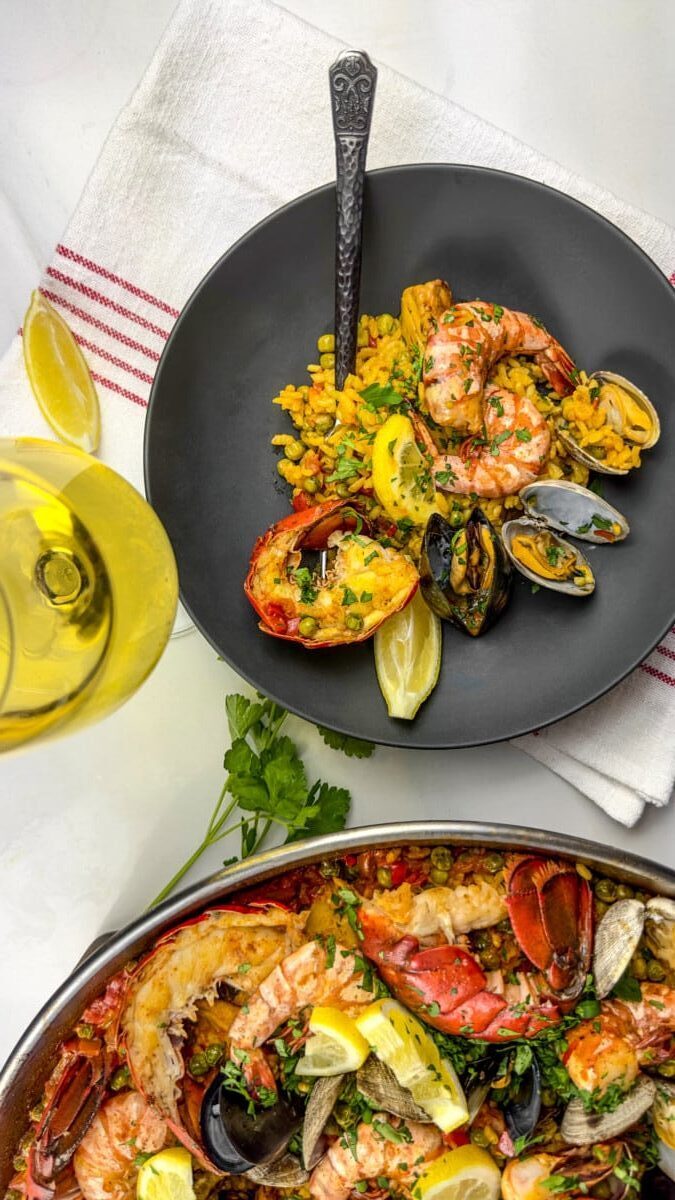
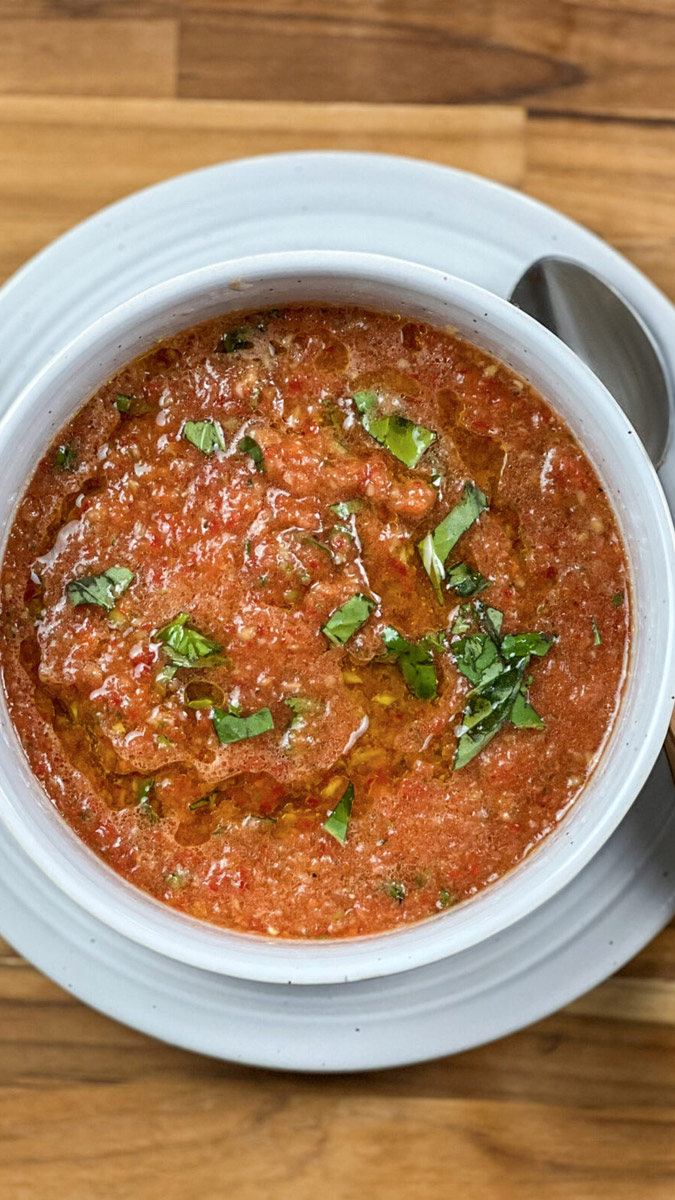
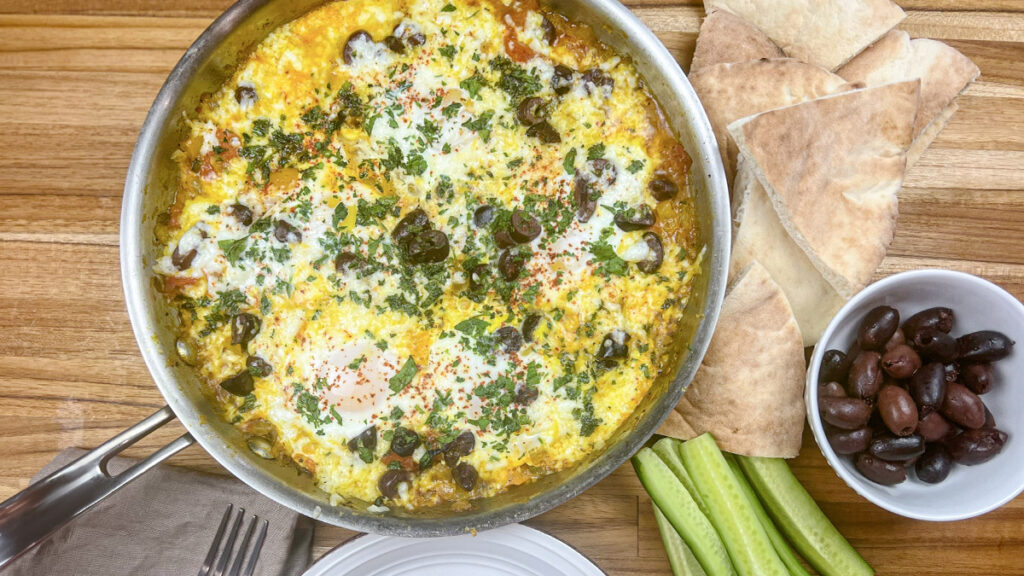

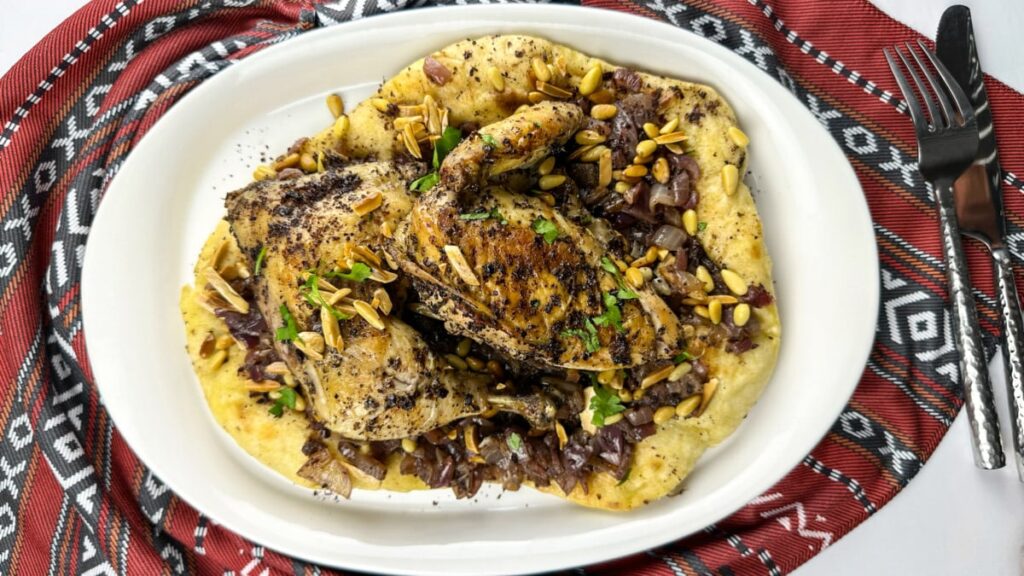
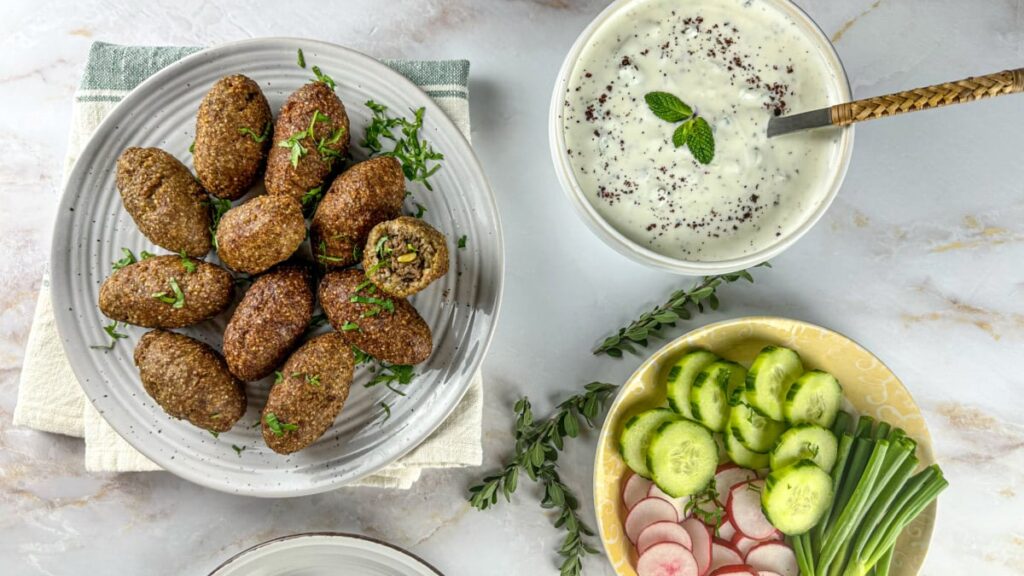
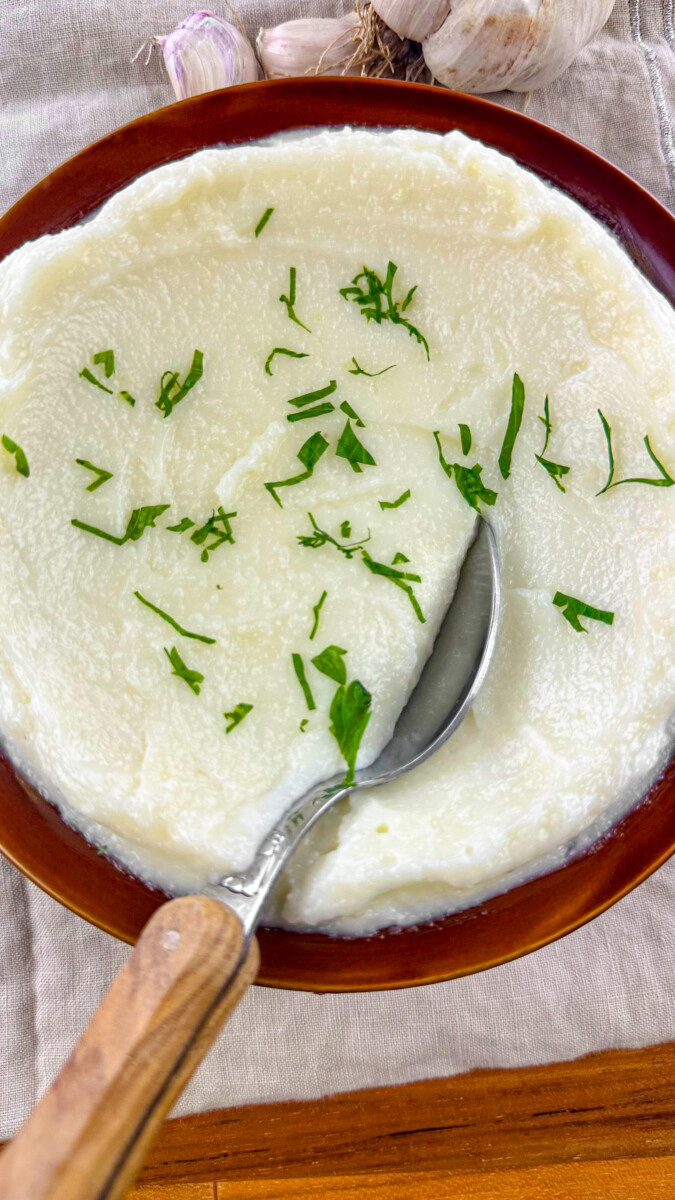

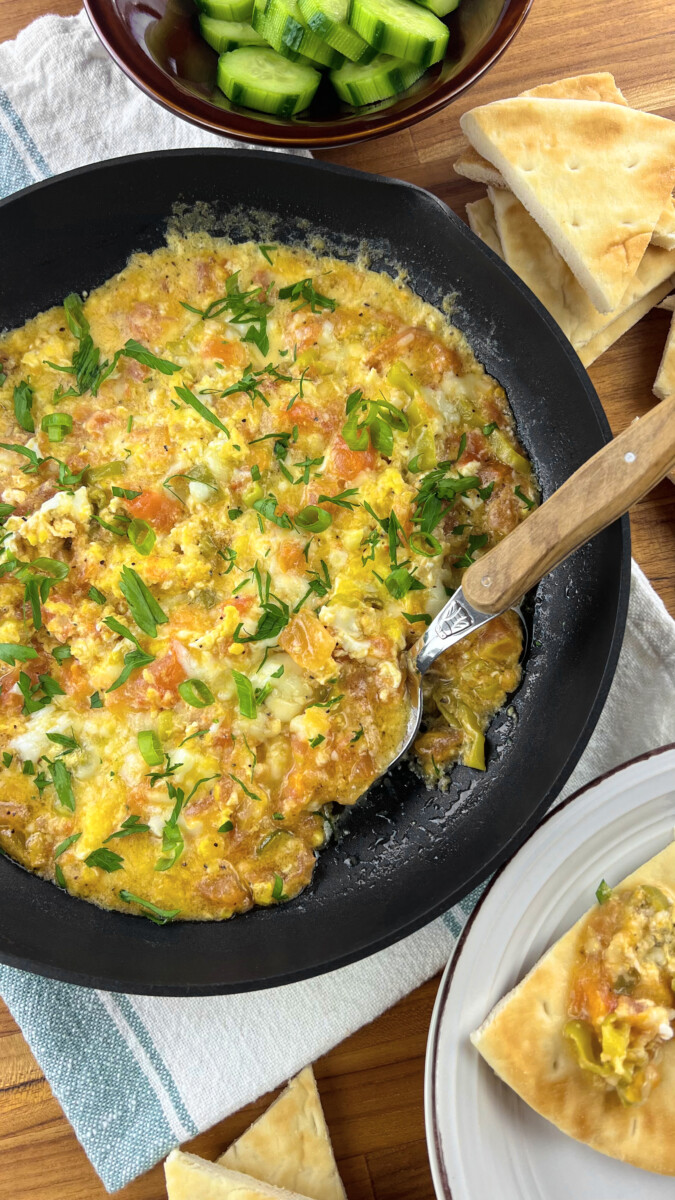



Leave a Reply